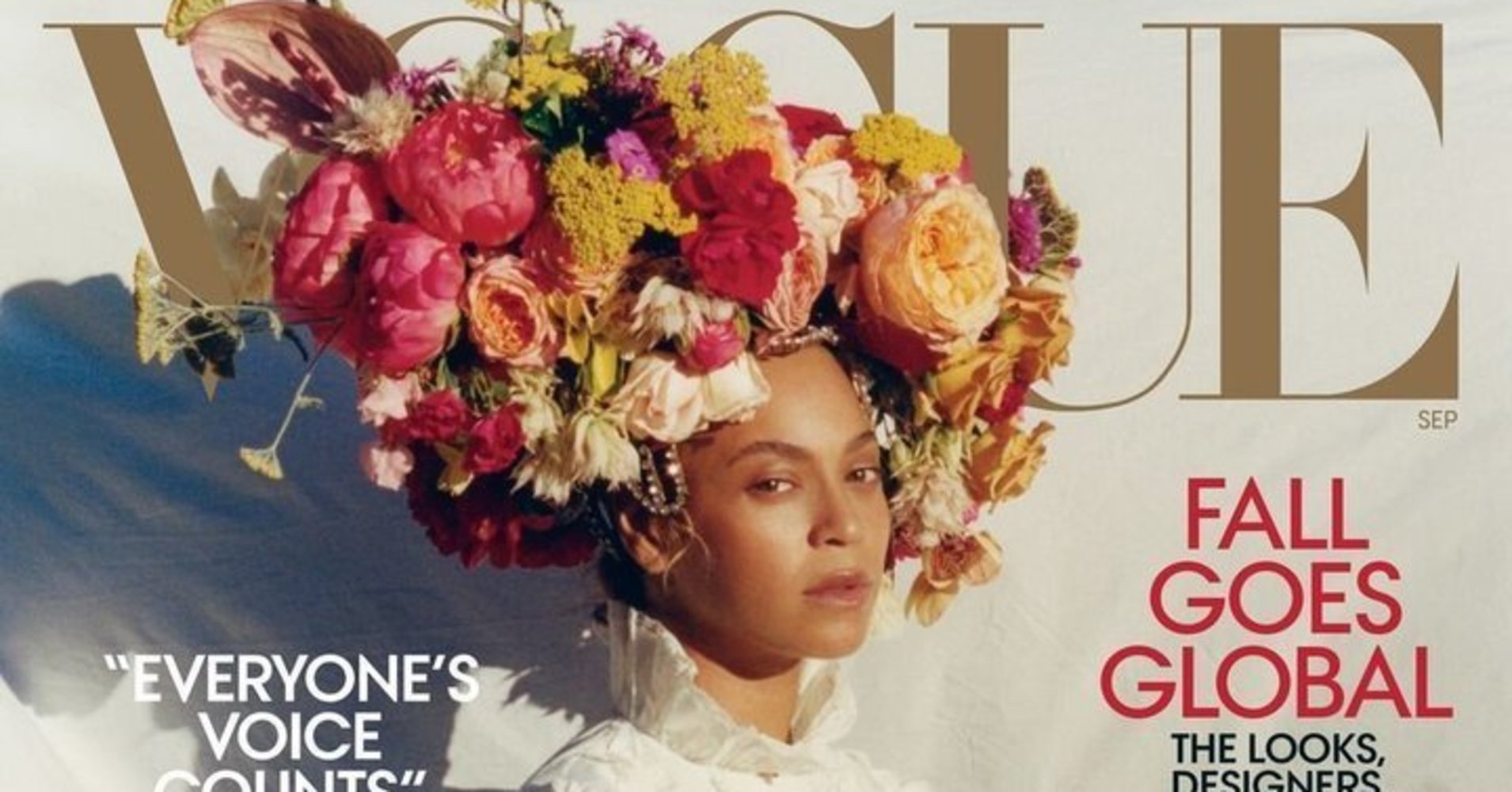[ad_1]
When Beyoncé moves, mountains follow.
Her impact has never been subtle. Even when Beyoncé covered the 2015 September issue of Vogue and declined to give an interview, her silence spoke volumes. She speaks to us when she’s good and damn ready.
So when news broke that she’d be covering this year’s September issue of Vogue, many rejoiced, expecting her to snub another request for an interview. But not only did she speak; she did us one better. Beyoncé took control of her narrative through the entirety of the package, allowing herself to be vulnerable enough to share her experiences with birthing complications, body image issues, generational tolls and more.
She was able to do so, in part, because of the people working to bring this piece of journalism to life who looked like her. She approved Tyler Mitchell to lead the shoot, making him the first black photographer to capture a Vogue cover in its 126-year history. Her words, as told to black journalist Clover Hope, humanize our beloved icon but somehow remind us just how godly she is at the same time.
And it was clear as day that she did it all for us. Beyoncé took one of the top (and whitest) magazines in the world and placed a welcome mat down for people it ignores. She used her reign to shine a light on and celebrate blackness and black womanhood. She drew the curtains back to welcome the ancestors and left the front door open for generations to come.
And what makes this even sweeter is that Bey is among a class of black women rightfully ruling September 2018 covers. From Essence and Ebony to Elle and The Hollywood Reporter, these covers remind us of the space that we deserve to take up.
On this edition of “Run That Back,” Julia Craven and Taryn Finley discuss Beyoncé’s history-making Vogue cover story, the ties from the past that bind us to our futures and the beauty of Bey finishing her own braid.
Julia: Good mornin’, auntie.
Taryn: The morning is indeed good because this face greets me every time I look at my phone.
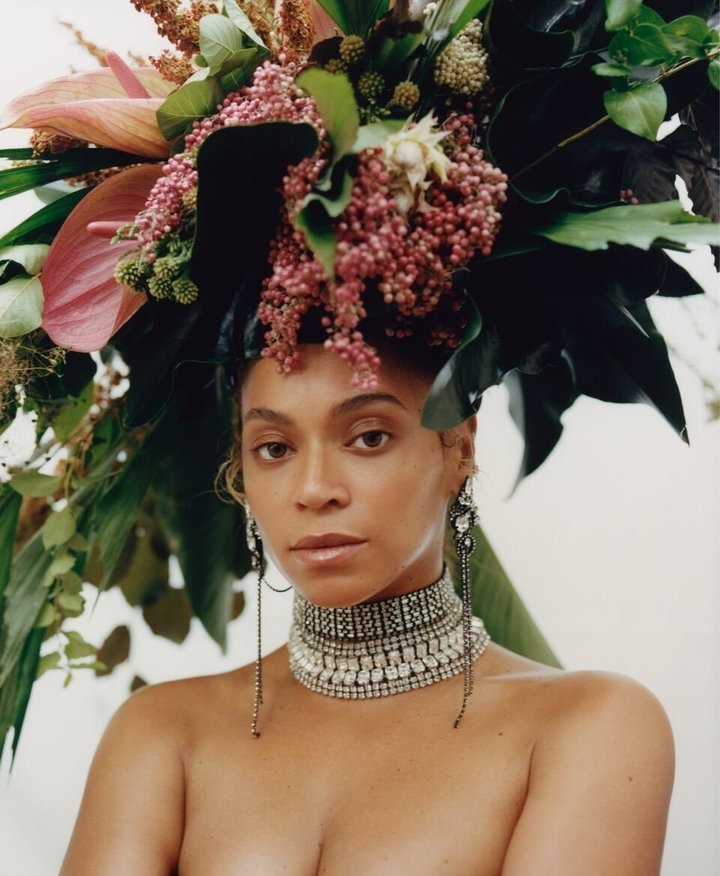
Tyler Mitchell / Vogue
Julia: HOOOOOOOOOOOW GREAT IS OUR BEYONCÉ?
SING WITH ME, HOW GREAT IS OUR BEYONCÉ?
Taryn: WOW. Let the church say amen. My spirit just feels so light. So refreshed. So rejuvenated.
Julia: We are blessed to live in a time when Beyoncé is Beyoncé. I’d rather give up everything than live my life without her. I’d rather die young than live my life without Beyoncé.
Taryn: See. Look at that spirit in you.
Julia: The spirit of the Texas Bamma is heavy this morning.
Taryn: Surely, the devil cowers at the energy, love and light that this Creole goddess emits.
Julia: Keyshia Cole is indeed somewhere SHAKING.
Sorry, I’m showing out.
Taryn: You can show out, sis. Sister Cole’s fish fry business could definitely use the promo. I just have one question for you.
Julia: I love a fish plate, so I ain’t mad. What’s up, though?
Taryn: How far did your wig fly when you saw this Vogue spread shot by the talented Tyler Mitchell?
Julia: I couldn’t tell you because when I woke up Monday morning, it was already gone. She ain’t give me time to get out the damn bed.
Taryn: So I had just come from On the Run II a few days prior, so I already didn’t have a wig, edges, eyebrows, none of that. I was in recovery. Just as I noticed a lil’ peach fuzz trying to come back, BAM! I had been thoroughly scalped by Beyoncé.
So happily, I come to this segment of Run That Back as a skeleton, paying tribute to the Queen.
AND SHE’S TALKING TO US THIS TIME. I DNFJKGWREHUIFHNRHJEKFEBGRUW
Julia: This is me coming into this segment:
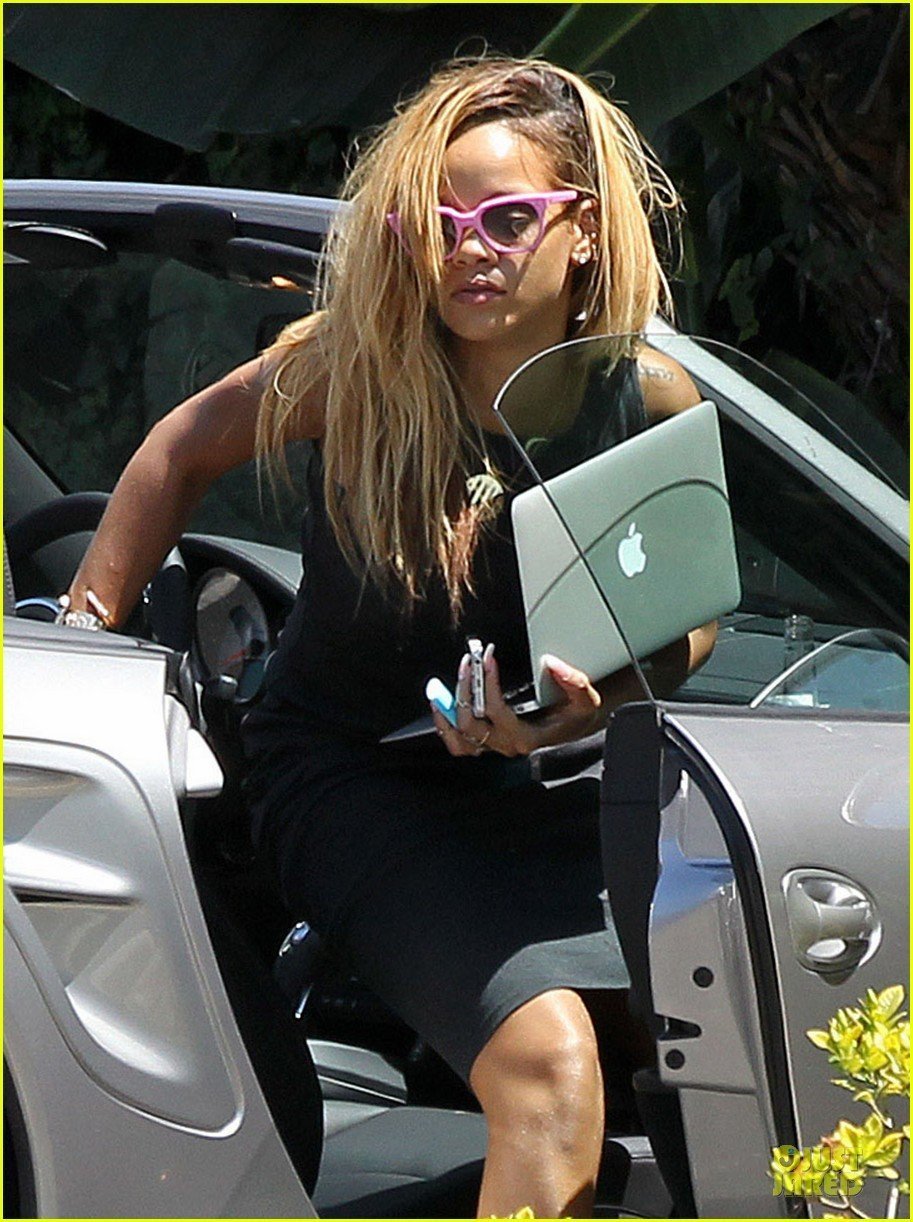
Twitter
Disheveled, but here to discuss our Queen’s word. And Beyoncé had a lot to say to us.
Taryn: WHEW. She ain’t said this much to us for free since her HBO documentary.
Julia: Keywords: for free.
Well, she said a lot in “Lemonade,” though IDK about anyone else, but I bought that sermon so I could always have it. Never seen a sermon so pretty. Need to know I’ll always have it with me.
I’m quoting Mom all segment.
Taryn: Y’all lucky she let y’all stream it, cause “Lemonade” was better than the world deserves.
Julia: It wasn’t on Spotify, though, Lord.
Taryn: People give Beyoncé so much flak for being calculated with how much she decides to share, but I adore that she couldn’t give a damn what we want/when we want it from her. She works on her terms and refuses to be stripped of her agency but still is able to be so vulnerable in ways that deeply resonate with us, especially black women. Black women in music aren’t able to do that. They have to give so much of themselves that it sometimes feels like the public dictates their moves. Bey ain’t letting that happen. I stan.
Julia: This my fave thing about her. She moves on her terms, and she values herself in a way that many black women should. Her family, her health, her sanity comes before anything, and we get the work we get only because her work makes her feel alive, per the Vogue article.
She’s so dedicated to herself and her craft. It inspires me to go hard as hell but to also step back and take care of myself.
Good things take time. Beyoncé shows us that.
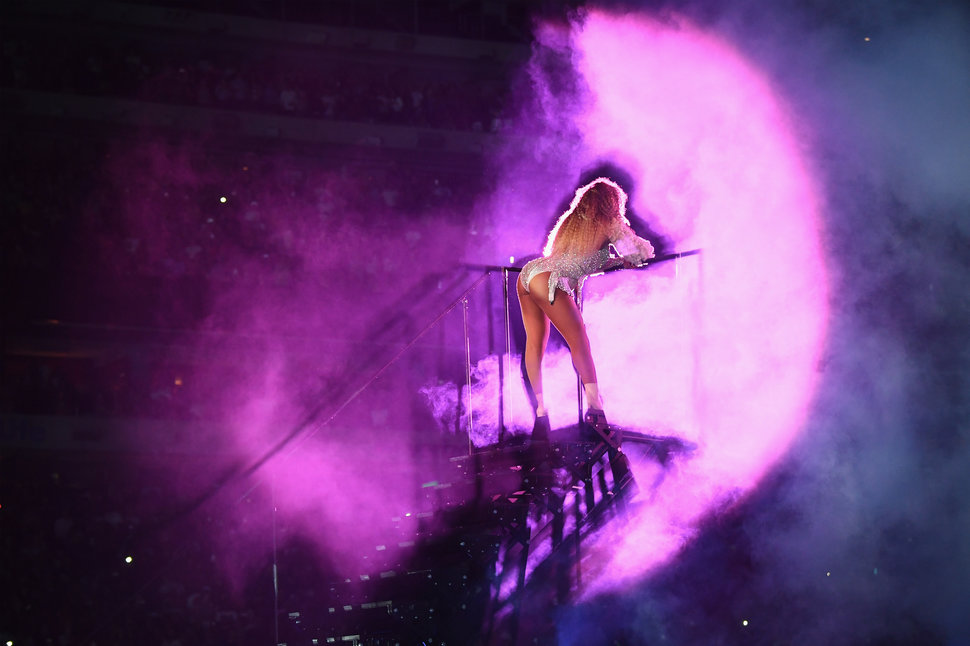
Larry Busacca / PW18 / Getty Images
Flawless
Taryn: Mm-hm. I also love how we’re seeing her evolve as a person as well as an artist. She talks about the pressure she put on herself after she had Blue, and I just remember how mean and anti-black people treated her and her daughter in the first years of her life. Calling Blue’s hair unkempt, being extra evasive and just doing the most.
I know that she didn’t say much about that directly in this interview, but I do think people talking shit about her first baby (along with the health complications, of course) was a big reason why she’s so careful with the twins and at the same time carefree when it comes to the world’s opinions of her.
Julia: She’s better than the hype. She gives me life.
Taryn: SHE CAN DO ANYTHIIIIIIIING!
Side note: “Nice” is a gospel song.
Julia: I’m also glad she spoke about experiencing birth complications that affect so many black women. Revealing that she had toxemia and the fact that she was fighting for her life after an emergency C-section shows us that no black woman is safe from such issues. It humanizes her while shedding light on how widespread these health issues are.
I appreciated her sharing that, and it also scared the shit out of me. I don’t have children. I want them, though, and I’m terrified because of the complications that could occur. Both my mother and my grandmother nearly died during childbirth. It’s terrifying, and if this can happen to Beyoncé, Serena Williams and other black women who have vast financial resources and access to top-notch health care, what could happen to me?
Taryn: That shook me to my core, honestly. As someone who also wants children, it’s something that I fear deeply. I’m really happy that she opened up about that because it’s just another reminder of how common these birthing complications are for black women. A family friend of mine died giving birth when I was younger. As I get older, I become more and more aware of just how many of us this affects. This is just one part of it, but doctors really gotta do a better job of listening to us, yo.
Julia: We also need to have more honest conversations about pregnancy and childbirth, because let’s be real: It’s shitty. It’s not as beautiful and wonderful as people make it out to be ― at least not to me.
Julia: But no, it is literally shitty. People don’t even know that you shit during childbirth. And you shit A LOT.
Taryn: You shit before, during and after.
Julia: Cleaned out right there on the table.
Taryn: Sometimes your bootyhole tears. And that’s a part of life.
Julia: Sometimes it tears from the vaginal opening down to the bootyhole. That lil’ fleshy in-between part? RIPPED.
I would apologize to our readers, but it wouldn’t be sincere. I want you to recoil reading this.
Taryn: I’m really more concerned about healing and my organs shifting back into their proper places than I am a snapback.
Instagram got y’all fucked up.
Julia: A snapback takes YEARS for most women, unless you drive yourself crazy working out like Bey did. Sure, if you’re super in shape before, it can happen for you sooner, but getting back into tip-top shape is hard for a lot of women.
“I just formed an entire mini human IN MY BODY then pushed said human out, and YOU WANT MY BODY TO LOOK HOW FOR TOUR? Fuck you, sis. From the bottom of my heart.”
That’s what my Vogue interview would say, but this is why I’m not Bey, LOL.
Julia: I also wanna shout out the way she told us not to body-shame ourselves, which has been a hard habit for me to break. As some may know, I’ve been on a health journey for the past 18 months or so, and I’ve lost something like 60 pounds and more than 20 percent body fat. And still, despite losing THAT much body fat, I still look in the mirror some days and drag myself. It’s hard for women ― and really everybody. It’s just that men don’t talk about it as openly, which is something that should change ― to accept our bodies as they are when all we see are IG models. And, look, them bitches bad as all hell, LOL. I ain’t mad at them. I’m mad at a world that tells me and other women that we hold value only if we look like that.
So when Bey said, “To this day my arms, shoulders, breasts, and thighs are fuller. I have a little mommy pouch, and I’m in no rush to get rid of it. I think it’s real. Whenever I’m ready to get a six-pack, I will go into beast zone and work my ass off until I have it. But right now, my little FUPA and I feel like we are meant to be.”
I shouted, and I cried. I literally cried. I know we stan out and exaggerate, but I cried because one of the world’s most beautiful women, a woman whose look is coveted, a woman as desirable as Beyoncé, admitted that she got a gut and she likes it.
So as a big belly bitch, I was really here for that.
Taryn: And sis, might I add YOU’RE KILLING IT. Your health journey is going so well because you’re prioritizing health over vanity. The fact that you look good is a bonus. I’m guilty of body-shaming myself as well, so I know how hard it can be to kick that, but Bey saying really does mean something. I get why you cried. Body positivity wasn’t just a talking point for her. It feels like she meant it because she also had to learn how to tune out what people say she’s supposed to look like.
And it took me back to “Pretty Hurts,” where she explained how she has always felt pressure to be perfect. It’s hard to prioritize health over vanity in a world that is incredibly vain and forces women to focus on looks over health. But then I have to remember that I couldn’t run 2 miles when I weighed 130 but I can now. So for Bey to put her health first and to say it so declaratively, that means so much. She’s using her influence for good (as always).
Taryn: I love her so much. She’s well aware of the influence she has and leans into it. This is why she’s able to control her own narrative in the biggest issue for Vogue. And that’s why she’s able to recognize young black talent and support Mitchell as photographer for this historic shoot and also support Clover Hope, an amazing journalist. She’s rooting for the young black folks.
Also, a hearty fuck you to Vogue for never having a black photographer shoot its cover in 126 years of its existence.
Julia: Fuck you, fuck you, Tyler’s cool, fuck you. She out. She ain’t seen a ceiling in her whole life, that’s word to Blueeeeee.
Taryn: ?SHE’S BETTER THAN THE HYPE. SHE GIVES YOU LIFE!!!!
Julia: Speaking of young Tyler, let’s talk about this black-ass photo shoot. I have a lot of thoughts on these sheets over these clotheslines
Taryn: Yes. Please. Let’s.
Julia: I just wanna say that Vogue has never in its history had something as black as a sheet over a clothesline on its cover.
Taryn: On the cover looking elegant AF but still like she good on any MLK Boulevard.
Julia: There’s something so Southern, so country, so black about it. It reminds me of helping my nana and muss (great-granny) hang blankets over the clothesline. I think about how fresh and clean they would smell still having that slight tinge of outside on them.
And when she’s holding the sheet in her hands with her arms open, it reminded me of running in and out of the blankets as a kid … and getting cussed the fuck out for it, LMAO.
Taryn: LMAO. I love that. My family country but not that country. Well, my grandma was.
Also, niggas would steal yo sheets in Ohio, so you had to protect yo neck or end up sleeping on raw mattress.
Julia: I always worried about my sheets being snatched, but it never happened. My grandmothers had a faith that I didn’t. I also just don’t think too many people wanted smoke with my nana, because she is always down to give it to you.
Taryn: That’s real. From what I heard, Nana a G.
Julia: I say “is” because you can STILL get that smoke if you want it. I don’t want it. There’s a story about how she told me she hadn’t shot at me because I hadn’t given her a reason to, but that’s not where we are right now.
Making Room At The Table
Taryn: I’m gonna start with an exhaustive list of things that Tyler Mitchell did:
1. THAT
The video he shot made this Vogue package mean so much more to me. I mean, the photos are stunning and reflect a kind of regality that feels very close to home, very familiar for black people, but there’s just something about seeing Beyoncé evoke this hoodness and be playful and tender. And for Curtis Mayfield to be playing makes me feel just so comforted and welcomed — something I don’t always feel with Vogue content.
Julia: I’m a faithful Vogue subscriber. And I’ve never felt as welcomed by its content as I did with this Beyoncé package. The video was very intimate and familial. It had the same grainy texture you see in home movies, which, as you said, gives it a regality that makes it feel like I’m 4 years old, sitting on my muss’ lap and listening to the grown folks. Curtis Mayfield is my nana’s music. So it really digs into my blackness.
Also, Beyoncé finishing her own braid? That’s an underrated part of the black experience.
Taryn: I felt like I was floating this entire video. The braiding, Blue and nem playing in the yard, Bey doing the Bankhead Bounce. Everything about this was a piece of magic that only WE know so well. THEN SHE GAVE US A GLIMPSE OF THE TWINS. This entire package, like everything Bey does, is an ode to black womanhood.
Julia: Even down to the way she was multitasking ― goofing around, playing with the babies, fixing her hair and giving us a LEWK. It was a day inside being a black woman.
Taryn: And a reminder that y’all owe us. What, you may ask? Everything. Period.
Julia: PERIOD.
Taryn: Tyler is such a talented photographer, and I’m so happy he’s getting his shine. I know Viola Davis was talking about women of color when she said gave that speech about opportunity at the Emmys, but I think it applies here too. No black photographers had ever shot Vogue’s cover before, not because they weren’t capable but because the opportunity wasn’t there. We can’t always create the same doors white people are able to, because the privilege of professional access isn’t always there for us. So it’s much, much, much, much, much harder to break in. That’s why we’re still, in the Lord’s year 2018, seeing black people becoming the first to do something that should’ve been done a long time ago. But the way racism is set up, of course, it takes us over a century to get anything done. Those “cultural and societal barriers” Bey talked about in this cover story aren’t made up by us. They’re enforced by the very system that created them. That’s why it’s important to reach back to pull forward.
Julia: Yes, yes and more yes! I’m glad she revealed how she was told that black people didn’t sell and how that is bullshit. It makes me so sad that we’re still seeing black firsts. Like, it’s 2018, and Beyoncé had to make Vogue hire a black photographer.
Taryn: Let me just drop one of my fave gems from this piece here: “If people in powerful positions continue to hire and cast only people who look like them, sound like them, come from the same neighborhoods they grew up in, they will never have a greater understanding of experiences different from their own. They will hire the same models, curate the same art, cast the same actors over and over again, and we will all lose.”
It’s so true, bruh. How boring is it to see the same perspectives, the same faces over and over and over again. The norm is always defaulted to whiteness, and that’s trash. By leaving other voices out, you’re basically telling them their experiences don’t matter and they can’t add to the conversation. It’s sad, but we still see this happening in every major industry. I’m really happy that black people in high places are using their power to rectify that, but more white people need to use their power to amplify those who don’t share their background. This trend of seeing the same white faces elevated while POCs struggle to get opportunities they deserve is irresponsible, lazy and predictable AF.
Julia: Incredibly predictable. It’s old. Not everybody is white, and we deserve to see ourselves reflected properly. Tyler knows that too. In his Vogue article, he said, “For so long, black people have been considered things. We’ve been thingified physically, sexually, emotionally. With my work I’m looking to revitalize and elevate the black body.”
And I shouted at my desk. This is why Beyoncé tapped him. His work is humanizing and helped her humanize herself. His pics elevate us beyond just being something to look at. His camera sees us. It’s not just shooting. It’s seeing. This is what happens when you give black people a space to do what we do ― see one another.
Taryn: Yoooooo! I know I was looking at an actual goddess in this spread, but I did feel soooo seen. That young man did the damn thing, but that’s not a surprise. He’s so talented, and I’m so happy that he is (and has been, TBH) winning.
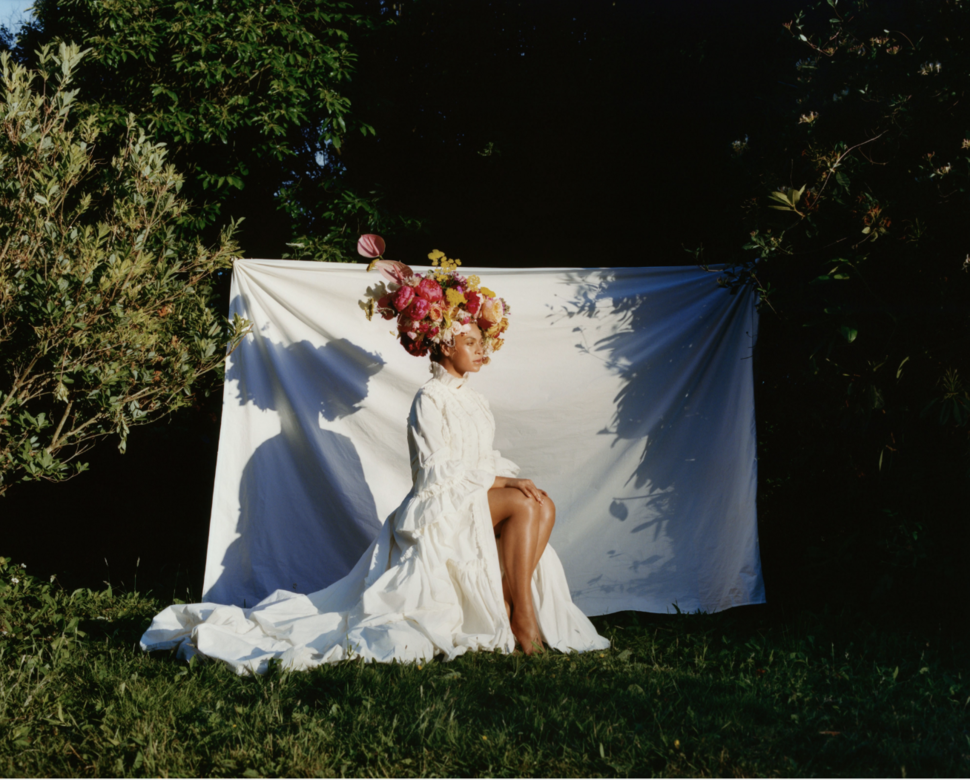
Tyler Mitchell / Vogue
Root Work
Taryn: I also felt very seen when Bey discussed the generational curse of broken relationships in her lineage.
Taryn: I saw some criticism from folks about this because she said she came “from a slave owner who fell in love with and married a slave.” It’s not pretty by any means, but it’s a fact that that is a part of her history and plenty of other black people’s history. Someone said that this wasn’t a generational curse and that capitalism and climate change were instead. I don’t disagree that the latter are, but why aren’t the ills that our ancestors faced that still affect us today generational curses? Especially since slavery wasn’t even that long ago, if we talking ’bout generations past. The same ills my great-grandmother faced, I feel today, and I have to make intentional decisions in order to break them. Debt, toxic forms of emoting, health issues and lack of access to resources to rectify these things ARE generational curses.
Racism and sexism are generational curses that — to this day, in August 2018 — set black women so far behind from jump.
Julia: I felt like people were getting caught up on semantics here. I saw a lot of issue with her saying the slave owner “fell in love with” her ancestor, which I understand 100 percent. However, I also think her point was incredibly clear.
She’s speaking on this situation in the context of abuse of power in relationships, and this is very clearly an abuse of power.
Taryn: Yeah, I def get that too. And it’s valid. But as you said, her point was really clear.
Julia: And that abuse of power does cycle through generations. For black women, all many of us know is being in relationships with men who use their power, whatever it may be, to keep us in a lower position.
We watch our mothers stay with men who abuse them physically, emotionally, mentally or all of the above. And that sticks with you. A lot of us pick up the tolerance exhibited by our mothers whether we mean to or not. Now, there are a vast number of reasons women don’t leave, and I want to make it very clear to readers that it is not as simple as walking out of a bad situation. Niggas kill women over that, over much less.
It’s complicated, but I do think it’s generational, because I believe that we inherit more than we’d like to admit from our elders.
I hope that doesn’t sound like I’m a woman-bashing piece of shit.
Taryn: No, you don’t at all. I believe all of the above is why Bey thought it was so crucial to mention ancestry as a way to indirectly talk about her relationship.
Julia: We don’t know if there were parallels to her mom and dad, but I’d bet that she assessed some of her mother’s habits in herself and some of her father’s in Jay’s and was like, WHOOOOOOA. Because, look, same.
Taryn: Yup. Then she dug into her lineage and peeped game. Ain’t nothing new under the sun.
Julia: Not a thing. It’s important to look back and see our ancestors as human, not deities who were perfect. I hate that. I get why people do it, but my great-grandmother, for example, was a black woman before she was anything else. Once I humanized her, her layers began to make more sense. I had to do the same for my nana and my mama. They’re human. Of course, I revere them, I honor them. But they aren’t gods.
When you humanize them, it all makes more sense. It lessened my frustrations with their ways, and I was able to create my own path.
Taryn: Mm-hm. As important it is for us to learn from our ancestors, it’s crucial that we unlearn some of the ideas, habits and perspectives that we inherited from them.
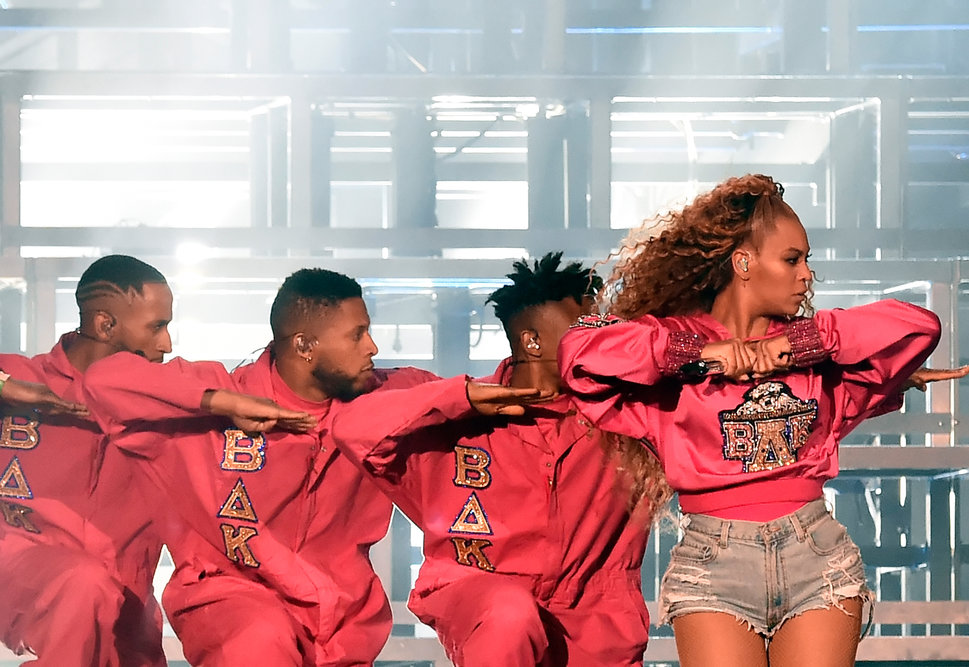
Kevin Mazur / Getty Images
Uplifting Black Life At Beychella
Julia: One thing I thought was hella interesting was where Bey got the inspiration for Coachella from.
Taryn: Beychella was a gift from the ancestors delivered by Beyoncé Giselle Knowles-Carter. My God. What a show. And it still has my wig by the roots. I love that she says she was “randomly” singing Rumi the black national anthem and that was the catalyst for how she slayed TF outta her performance of “Lift Every Voice.” So I was there for Weekend 1 and had no idea what to expect, given that the festival is whiter than rice. So when we got this blackety-black-black intro, of course I was living. But when she transitioned “Freedom” into the black national anthem, I damn near fell out. I already wrote about this, so I won’t go into too much detail, but she really did that for us and made sure that was made clear as day.
Julia: Yes! The transition into “Freedom” SNATCHED me! The fact that she was singing it to Rumi and then talked about passing on that knowledge got me to thinking about how black women — our mothers, our grandmothers — are usually the ones who pass down traditions and ancestral knowledge. It felt like that’s what she did for the world too.
I could also be reaching like shit, LMAO.
Taryn: I don’t think it’s a reach. Beychella doubled as an oral history of some of the most beautiful things from our culture that we sometimes take for granted. When it comes to teaching younger black folks (and even our peers!) about HBCUs, black Greek organizations, bands, etc., there’s this debate around relevancy. I think passing down knowledge about what Beyoncé highlighted at Coachella is paramount to ensuring that we never lose pride in these cultural pillars.
Julia: I’m wiping tears. So well said. Nothing to add, except: MY GREAT-GREAT-GRANDCHILDREN ALREADY RICH ― with knowledge.
Taryn: ?THAT’S A LOT OF BROWN CHIRRUN ON YO FORBES LIST!
Julia: Bey is a fortress. Whew.
Taryn: She is. An entire titan with a purpose. She sees the bigger picture in everything and understands the role she plays in it.
Julia: “It was a celebration of all the people who sacrificed more than we could ever imagine, who moved the world forward so that it could welcome a woman of color to headline such a festival.”
Whew, I’ve been MOVED. She’s our supreme. The way she saw the power in her and Jay being able to perform at the site of the 1936 Olympics in Berlin was a lot for me.
Taryn: She’s a history stan. That’s why her artistry has been able to have such big themes and references. She leans into the gravity of specific events and relates them to her identity and how she and her family been able to become iconic. It’s a way she recognizes and acknowledges her privilege.
Julia: YESSSSS! And this is why we stan.
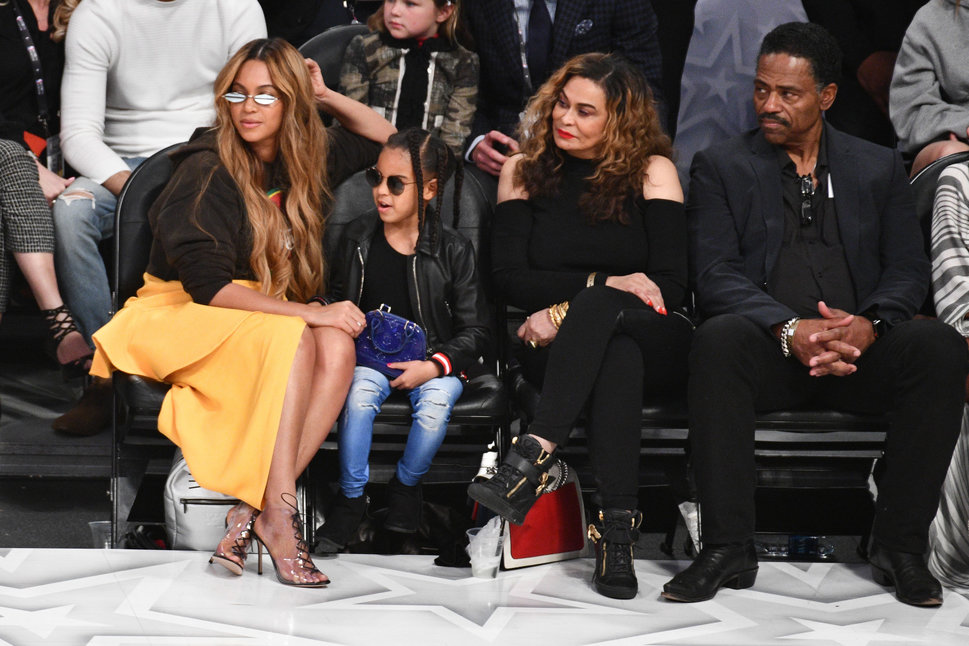
Allen Berezovsky / Getty Images
Her Impact
Taryn: I love that this piece ended on legacy. She’s actively thinking about what’s she’s leaving behind for her kids to stand on and what her mom left behind for her. She’s empowering her daughters to never let anyone tell their stories for them and teaching her son to be better than his daddy when it comes to his emotional intelligence (and everything else, TBH). Both of these things are so important for working to break the generational curses we talked about earlier.
Julia: I loved this quote.
My mother taught me the importance not just of being seen but of seeing myself. As the mother of two girls, it’s important to me that they see themselves too — in books, films, and on runways. It’s important to me that they see themselves as CEOs, as bosses, and that they know they can write the script for their own lives — that they can speak their minds and they have no ceiling. They don’t have to be a certain type or fit into a specific category. They don’t have to be politically correct, as long as they’re authentic, respectful, compassionate, and empathetic. They can explore any religion, fall in love with any race, and love who they want to love.
She’s not just raising her daughters; she’s protecting them in a way that we don’t see. Usually, people raise their daughters and coddle their sons, which is why these niggas can’t hold a conversation without feeling entitled. But I love that she’s opening the more political doors for her daughter while opening emotional doors for her son.
Taryn: I’m really excited to vote for President Blue and Vice President Rumi in the future. I’m also excited to live in a world where Sir is sponsoring emotional literacy master classes for niggas who know how to text only “WYD” and “Aw OK.” [Cues hit dogs hollering.]
Julia: “Aw OK.” — jknscbhewuigfyufhjbdscgvh. You forgot “Aw, without me?”
Taryn: That’s the go-to, as if anybody was even thinking about inviting ashy company.
Julia: You could be on your deathbed, and a nigga will ask you why you there without him.
Taryn: And then he’ll miss your funeral, and when he finally dies and sees you in heaven, will be like, “My bad, I 4got. WYD tho?”
Julia: And when you don’t respond, he’ll act like you did him wrong. Thankfully, Mama Bey isn’t having that out of young Sir.
Taryn: Amen. I’m just really blessed to witness these children of destiny via my IG feed. Bey is really a good parent.
Julia: And very thoughtful about her children’s emotional well-being in a way that many people aren’t. But I think that’s because now women are being allowed to be thoughtful like that. A woman can say, “I’m not raising my son to not cry” and not get looked at like she’s crazy.
Taryn: I remember when Jay was on the second leg of his apology tour, he sat with David Letterman and talked about a time when he told Blue to get in the car because she was asking a lot of questions before school. He said Blue told him, “Dad, I didn’t like when you told me to get in the car the way you told me … It hurt my feelings.” He said that touched him. I know they probably tell their kids to be honest about what they feel and stand up for themselves, but I wonder how much of it is Blue just soaking up the way her mother asserts herself at home and at work. It’s really powerful the impression she’s making on her kids, not just through her career but also in how she handles herself and uses her voice.
Julia: I remember that because I, too, watched that episode of Letterman’s lil’ Netflix show. And kids pick up on everything. They’re very self-aware from a hella young age. I’m sure Blue seeing Bey tell people that they aren’t going to speak to them any kind of way has been impactful on them. Ideally, my children would be the same way. Silencing kids in the way that many (black) parents do is only causing them harm as they grow up. Many of us are emotionally stunted adults because we were stifled as kids.
Whenever me and bae talk about kids, I always make sure we’re on the same page about letting them have a voice and not shutting them down. Kids are lil’ people who have thoughts, feelings and insights. Of course, sometimes you gotta be like “Aight now, I know you feel like having ice cream for dinner, but that’s not happening.”
But mostly, children respond really well to being spoken to like they’re human. My friend’s daughter spilled sand all over the living room, and my homegirl told her child that she was upset and disappointed. And babygirl came and apologized on her own accord! No yelling, nothing crazy. So I’m glad Bey is setting that example for her kids and bringing Jay into the fold as he deconstructs his own shit.
Taryn: I love that so much. We carry so much shit that we learn from childhood into who we become as adults, and if every time you talk to your child like shit every time you discipline them, you’re setting them up for a lifetime of unhealthy communication patterns until that trend is broken. (Hey, therapy!) Blue gets it already, and I honestly stan just as hard for her as I do her mama and granny.
Julia: That. Part. It’s also important to teach girls ― and our boys! ― that it isn’t OK for people to be mean to you.
Taryn: I really get sad thinking about how black kids don’t always have the privilege of feeling like they can mess up and it’s OK because we can talk about it and learn what to do better next time. Or like they can just express that they don’t like about how an adult speaks to them. It’s hard because the way white supremacy is set up, black kids are adultified by EVERYONE. So even in our own households, we have to grow up fast because our parents make sure that we know the consequences of being black in public.
Plus, yelling seems more effective for making sure your kid doesn’t do something dumb that costs them their life in the short term, but in the long run, that shit is traumatic. Many of our parents yell at us and teach us lessons that way because it’s the only way they know how. It’s how their parents spoke to them and how their parents spoke to them. And we can take it all the way back to slavery (AND I ALWAYS WILL BECAUSE IT ALWAYS APPLIES, SO LOG OFF OR STAY MAD), but its roots are in survival.
Julia: I’m glad our generation is changing that, because yelling is so traumatic. I talk to my friends about how much being yelled at fucked us up. Some people cower under yelling as adults, and others, like myself, get angry in a way I still don’t quite understand.
Taryn: I’m glad too. Therapy should really be a part of our reparations package.
[ad_2]
Source link

